GAMES
1,935
Bravely Default II - Final Thoughts
4 years ago
I've finally finished this game now, so I want to blurt out all the thoughts I had about it along the way before moving onto the next thing!
I don't really expect anyone to care about these game 'review' posts, but I feel like I can't move onto the next game until I've written them out (and there is one I want to start next), so...!
![]()
Overall, did I enjoy Bravely Default II? I suppose so. Notably, it grew on me; I felt quite 'meh' about it at the start, but I got drawn in and spent 70 hours in its world. This is always the case for me, which is why it always seems odd to me when people seem to expect to be instantly gripped.
I
think it's similar to the others in the series in a lot of ways, but it worries me how little I remember about those despite spending about the same amount of time in them, if not longer, not many years ago. I literally don't even remember who the protagonists of them were! Funny, since one of the main narrative themes of this one seemed to be memories!
Speaking of narrative...
Bland Prattle
![]()
The cast were four people who became Heroes of Light, continuing the theme from the previous games in the series. Their personalities seem to align roughly with the four temperaments (makes me wonder whether or not it was deliberate): there's Seth, the bland everyguy protagonist who you can name, who's a sailor but that barely comes up (phlegmatic); Gloria, the solemn, dutiful princess of a destroyed nation who's questing to restore the four missing elemental crystals (melancholic); Elvis (surname Lesley, according to one dialogue scene), the lighthearted merrymaker who likes drinking and has the catchphrase "don't sweat the details" (sanguine); and Adelle, a brusque mercenary who Elvis hired and who she's always making barbed quips towards (choleric).
They're... fine, I suppose, as far as casts go - I didn't dislike them at all and was at least a bit sad to say goodbye - and the game puts a lot of focus on social elements, in a sense. They talk a lot among each other in both story and optional party chat scenes, some big, dramatic moments have them announce their motivations and general camaraderie... But there's something about it that feels empty to me, or bland.
![]()
They're all
good people. The closest any has to a flaw is Elvis being very into drinking, but it's portrayed as a charming quirk - a joke - and nothing more. There's little more to their personalities than what I described briefly there, and I'd say that they're pretty much the same at the end as they are at the start. Maybe you could say each of them had an arc, but those arcs were more about some fact being revealed or changing than some kind of meaningful psychological growth.
Or I suppose Seth
is constantly trying to molest children, and they're always having to restrain him. So that's a cheerily little quirk that adds some spice to things, oh ho ho!
![]()
And there was that quest where your party helped Gloria lose her virginity to a man she met online.
![]()
...Those things might not be true. (Just imagine the response! "There's no internet in their world, 1 star", all the reviews would say, verbatim.)
Maybe I'm being unfairly harsh by considering the characterisation bland, or I'm missing something because I'm looking in the wrong places? It's not something I disliked, to be clear; I just... noticed it, I suppose. Made me wonder about my own stories and characters - what I am or am not doing differently - and about the stories of other JRPGs; are they all like this? Or is being bland like this a good way to make characters who are decently palatable to a majority and irritating (or offensive!) to few, whereas characters with deep-opinion-inducing traits (eg Collie) are a risk not worth taking? I've certainly been wondering about that myself a lot recently.
It's something I noticed with the mobile game Pokemon Masters, where you unlocked human characters from the various games together with their companion Pokemon, as well as story scenes where you learned more about them. But their personalities were always some slight variation of "I care a lot about Pokemon and have [superficial interest/quirk]", so I didn't even bother looking at most of those story scenes even though story and character expression are of paramount importance to me. What is there worth seeing when nothing is a surprise?
![]()
To give an idea of I mean from Bravely Default II, there were some optional sidequests that involved not-short voiced scenes at the start, sometimes during, and at the end. You'd talk to some nameless NPC because a blue bubble appeared above their head, then one of your allies would talk about something, and you'd have to go off and fight some monster or something. I like the
idea of learning more about characters like this, but the execution just... well, it made me wonder about what kinds of things people focus on, are interested in, talk about among each other.
No less than
three of these optional quests involved one character expressing a desire to either taste - or avoid tasting - some (never before or again mentioned) food, so you had to get the ingredients for that or an alternative food, after which they would either presumably taste that food off-screen or just talk about how they didn't want it anymore or how it was great they could try it or some drivel. It just came across to me as vacuous; the sort of superficial thing that could be applied to any character without saying anything actually interesting about them at all.
But then again, I'm the sort of person who's bored to tears by small talk about mundane things like what food people ate, while others post their meals on social media, and I find interesting in the absurd or unexpected, so this is probably just a case of focusing on things that are interesting to some minds but not to mine. Or something. Not everything has to be about delving into dark psychology! Maybe just the simple pleasure of being with decent friends is enough for most people.
I think the other games in the series were like this too, which is why I don't remember them much at all. But I also have memories of similar exchanges in other JRPGs, maybe? I think I just never really paid much attention to it until now, since I've been thinking a lot about this stuff recently since I'm trying to make my own.
![]()
The asterisk holders - who you won jobs from - were sometimes more entertaining than the main cast. This cartoonish caricature of a character (on the far right) reminded me very strongly of Mor(r)ic. I also liked a trio of them who had relationships with one another (two were married, the other was a friend), who joined the party as temporary allies after you defeated them.
![]()
The overall story was also about some generic evil monster trying to destroy the world, as is common for this genre. Not exactly a strong villain! I felt nothing when finally facing it.
Gameplay
I spent a lot of time concerned about the gameplay while working through the game, but the thought of talking about it afterwards feels draining! I will now do that at some length though because I am stupid.
I'm a mediocre gamer at best; maybe slightly better that someone who prefers a completely casual path, but I don't care to get into the nitty-gritty mechanical details of games I didn't make. So my experiences come from that perspective rather than someone scouring the internet before release for optimum strategies or whatever.
I swapped around jobs a fair bit, but mostly decided on a party build and stuck with it: two warriors, a dual-shield-wielding defender/white mage who absorbed most incoming damage (odd combo, might make a
meta player cringe), and a quick versatile character who I eventually made into a second white mage.
Jobs could learn 12 skills as they levelled up - 15 if you unlocked late-game improvements - which was satisfying enough, in theory, though I felt like most of them were useless to me; a lot of entire jobs felt that way.
![]()
The main appeal of them for me was a few passives, which characters could equip up to five of regardless of which jobs they had actively equipped. Some felt satisfying, but also overpowered; a Barbarian passive called Indiscriminate Rage made the free Attack command hit all opponents, which completely trivialised all random encounters from then on, especially since I could just spam the Brave command at the start of battle and execute an on-all Attack four (or more, with a certain job skill) times.
Many enemies had Counter abilities that triggered in response to specific scenarios, like "Counter Restoration" or "Counter Heroics Skills". These were often the only thing that made a lot of battles challenging, or annoying. Some enemies would counter physical attacks by inflicting Stun, or - worse - Confuse, so my attacker would turn their remaining (not-cancelled) attacks against my own party, destroying them. Ugh! Some late game bosses also had a counter that reacted to any action, and which gave them 1 BP, so they were constantly charging attacks they could unleash back-to-back. Frustrating.
![]()
There were a ton of stats, in the style I've complained about before, but
it was fine, I suppose. They're all familiar and not elusive (no 'vigor' or whatever, I say, even though I'm using odd names for mine). I've never seen 'chance to be targeted' or 'restoration power' (rather than using general magic power) as stats before, or a weight mechanic that worked as a basic stat like this - decreasing all others when exceeded, so you had to be careful about equipping too much heavy stuff - so I found those remarkable.
One job's specialty added its chance to be targeted to the character's attack, meaning I had the max (999) attack around mid-game, but it didn't seem like my attacks were doing significantly more than they were with an attack stat half that. Though this could just be some annoying aspect of the arcane damage formula used; this is why I prefer something simple and opaque.
It could have been a bug though; I also had some characters apparently having access to seemingly random passives, like a couple of weapon lore ones, or one who started battles with a dragoon Jump despite not having that job or any of its passives equipped!
Characters had Special abilities, which made their theme music play and gave you a buff for as long as it lasted; I think this was in the previous entries too. I ignored these mostly because I didn't want to change the background music!
Visuals
![]()
I liked the character proportions! This is something I've wondered about a lot when making stylised models for my own recent games. Bizarrely, essentially everyone was larger than the four player characters. Why?? Was it a deliberate reference to how those old games had things like giant human enemies in battle who dwarfed your doll-like characters? Octopath Traveller also did this to a ridiculous degree, but that felt like an exaggerated joke, while this felt weirder since they were only
slightly larger. Odd design choice.
A lot of characters had interestingly-shaped heads and noses, though I found it amusing how Seth and Gloria had literally the same Generic Anime head!
![]()
I found this character/job - the Oracle - interesting, since it used essentially the same symbols that I'm using in Atonal Dreams, notably the eyes. At least that means it's familiar and its meaning clear?
![]()
Dungeons tended to have I think five or six monster species, which is notable for me since I've wondered about that for my own game. There were only a few monster species models, with most being palette swaps. Good to know they could get away with that! I didn't mind.
![]()
I loved how the dungeons looked! Lots of variety, each one different, and I think I noticed reused tilesets (or whatever) only a couple of times. Some had the retro block-rooms-in-a-black-void look with a top-down camera, while others had more organic layouts, side-on cameras, or other details that made them stand out. More effort than I could be bothered with myself!
![]()
Each of the nations had a unique and interesting design, and they all looked gorgeous and distinct, with this blend of paintery 2D art and 3D. Different to the dungeons though, for whatever reason.
Music
I think there were four 'generic dungeon' music tracks, though at one point I thought "do all these dungeons have the same music?"... Then I listened carefully and noticed that no, they don't. And I'm supposed to be a composer!
There were also tracks that played in battles against the asterisk holders, which I thought for most of the game were just one track played for all of them. But there were apparently four or five different ones? I only noticed during some rematches towards the end!
In general, I felt the music was fine enough. Each nation had its own theme, and the world map music changed to variations of whatever nation you were near. Each character had their own theme too, which played when they used their Special. All the themes came together for some dramatic medley during the final parts of the game, which was satisfying.
At least one of the boss tracks just didn't appeal to me at all though, and I wanted battles that used it to just end.
I can't actually remember any of the tracks in a "wow, I need to add that to a playlist!" way, though I've got the soundtrack and might change my mind after listening to it.
Miscellaneous Comments
It's interesting how the games in this series are essentially spin-offs of (the Japanese) Final Fantasies III and V, but - unlike a ton of spin-off games I've never played - they don't wield the Final Fantasy name even though it might help sales. And yet they use a bunch of Final Fantasy conventions, like magic names, monsters, elemental crystals, etc. But not others; they don't have chocobos.
Maybe it's because I'm just not used to playing modern voice-acted games, but the voice acting in this felt extremely impressive to me! The line deliveries were full of nuance that showed awareness of
what was being said and
why, in a wider context, rather than just someone reading lines off a list in a vacuum.
I was also impressed by the range of accents; each of the world's nations used a different accent, most from the UK, and some characters were encountered outside their home nation, but had its accent so you could determine their origins.
There were also odd cases like the Australian Dag and his white mage companion, whose accent I couldn't identify. And Seth, who was American, which I suppose makes sense as a player stand-in. Refreshing to me as a non-American how that was a minority accent here though! I'm tired of all the other stuff where
everyone is American.
A lot of the side quests involved a lot of work for insultingly petty rewards (like going back and forth between a town and deep in a dungeon four times for a couple of common potions, that kind of thing), and there didn't even seem to be any kind of 'questdex' I could fill up by doing them. Annoying! Could have just missed it.
![]()
There was a Standard RPG Card-Collection Minigame, which I don't
think the other games in the series had, though that could just be my terrible memory. I like RPG Card Games and have tried to add them to my own games a few times! I liked this one well enough, though not as much as the ones from Final Fantasy VIII and IX, likely because I'm much older now. I won the majority of the time, but always felt like I might not. Characters had lists of cards they used, which you could get after winning, and it was possible to collect all cards from a person, to 'complete' them, which I liked. I didn't like how the cards' monster or human subjects weren't present on the playing field for the most part though - they just made blue or red squares appear - as it felt aesthetically unsatisfying.
I hated how there was no map! It strongly discouraged me from exploring the dungeons and led to a lot of frustration when I got lost and had to backtrack. Or if there was a map that I just missed, it wasn't obvious how to open it.
Bizarrely, there were quite a few dungeons which seemed to exist purely for sidequests? Entire dungeons with their own appearances, monster species, maps no smaller than the story dungeons. It felt so odd to me, like I was missing something. I don't know if I explored all of them, and the few I did go into I sort of rushed through because I wasn't sure whether I was even supposed to be there or whether they'd be plot-relevant in future (they never were).
![]()
One sidequest/optional dungeon had a boss at the end that felt like it was a reference to something, like maybe it appeared in another entry in the series? I didn't recognise it though, if this was the case.
I spent a lot of time towards the end struggling with that damn
stick drift issue that a lot of Switches seem to have been having, or so I've seen. At one point, I could barely even move left at all, which made navigation maddening. I might need to replace my 'joycons', as I believe they're called?
It wasn't clear when the game ended, which was... interesting, but I won't go into since it'd spoil things. I think it's similar to what the other games in the series did - at least Bravely Second - with its time loop thing, though I can't remember.
![]()
There! Done! Now I can move onto another game!




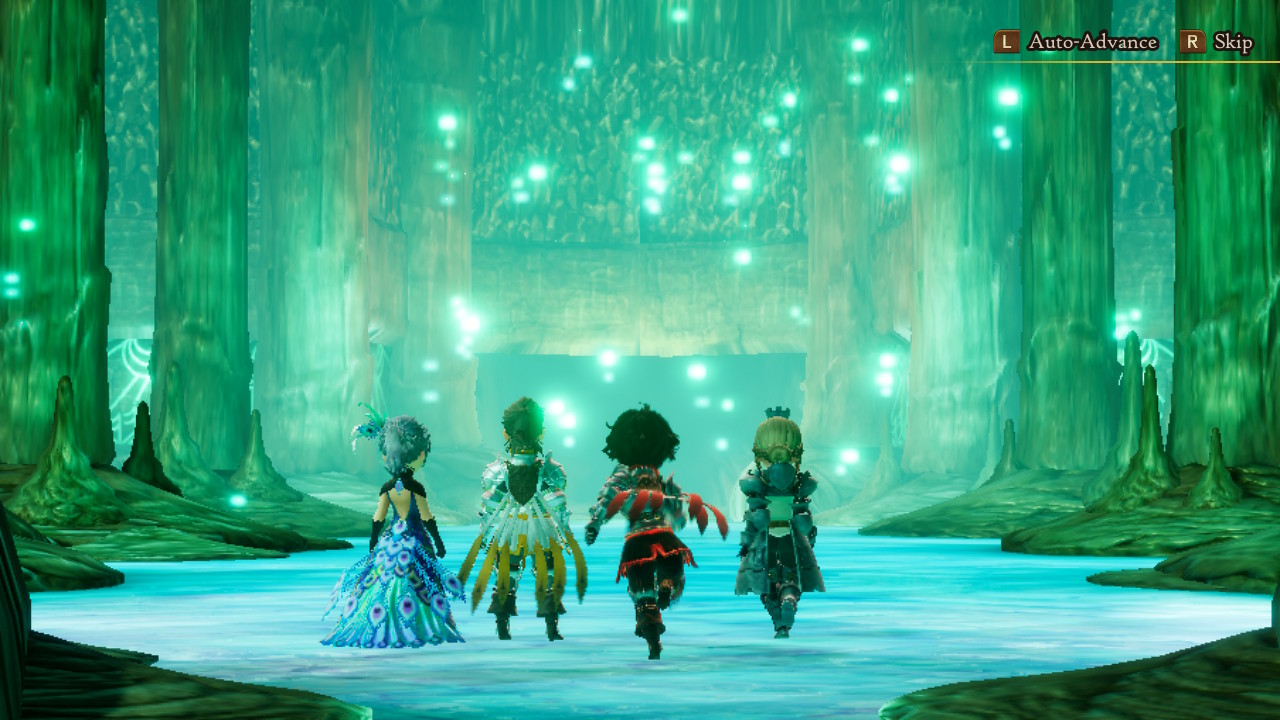
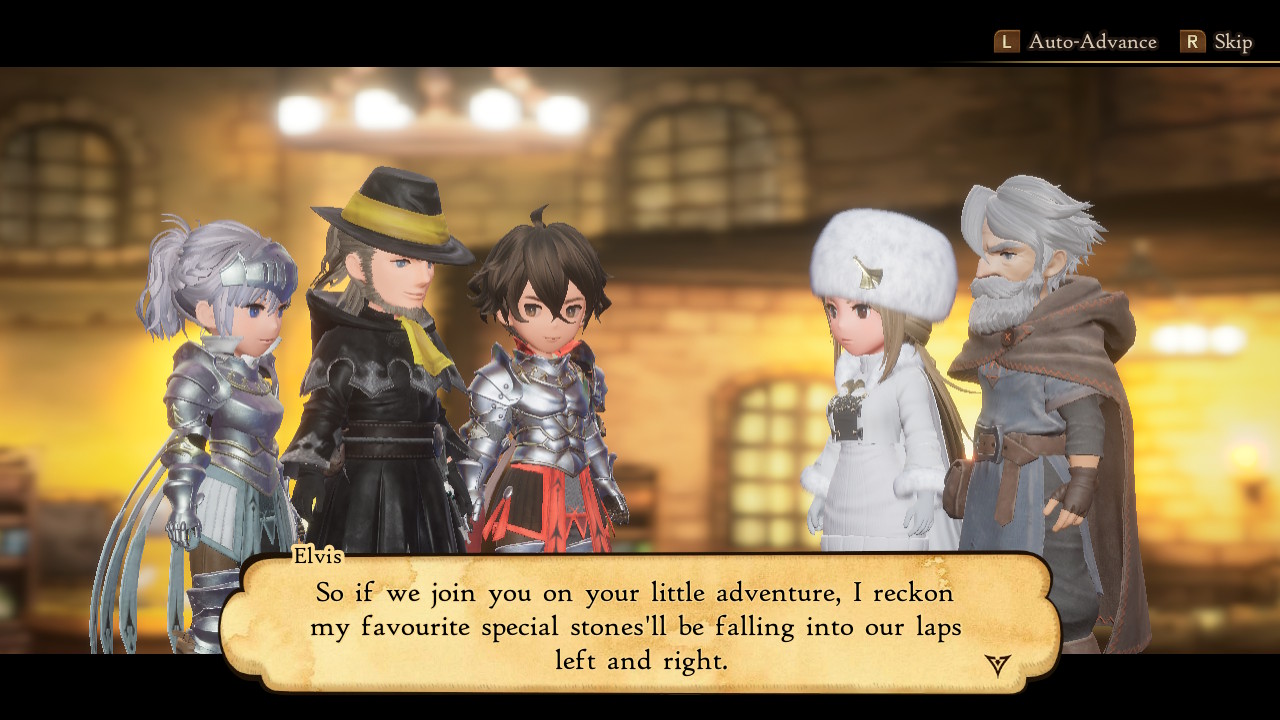
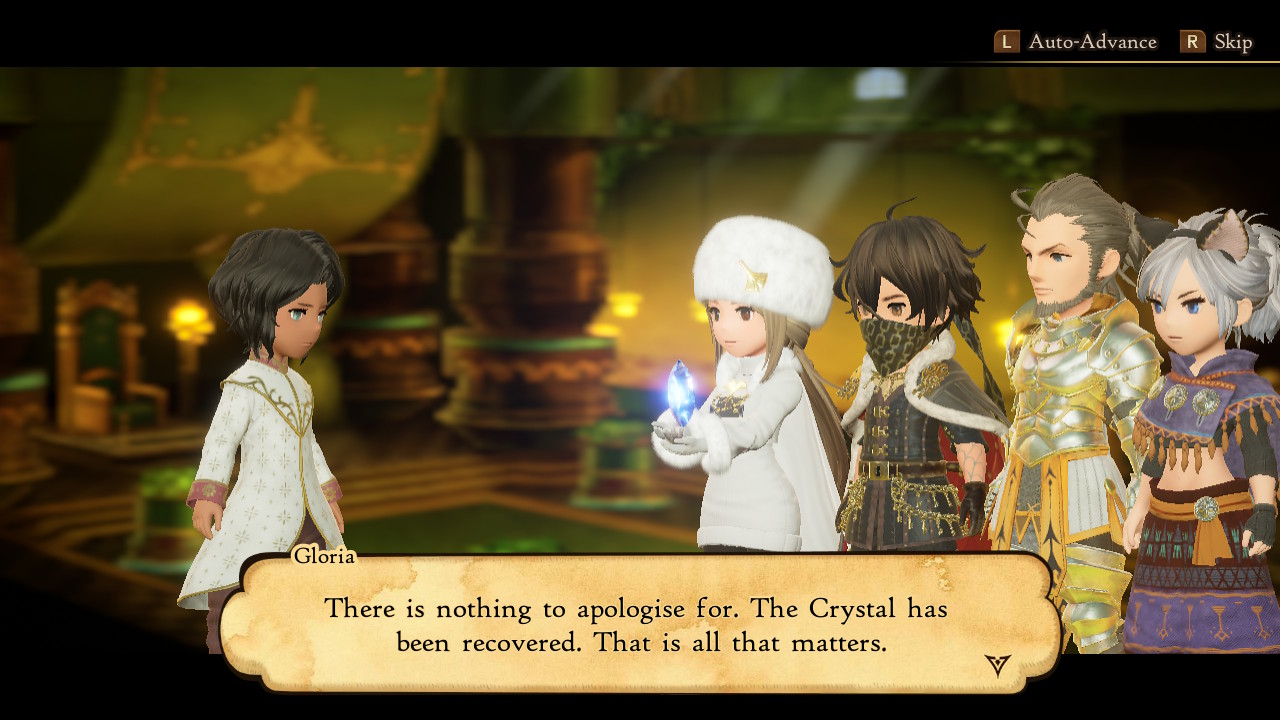
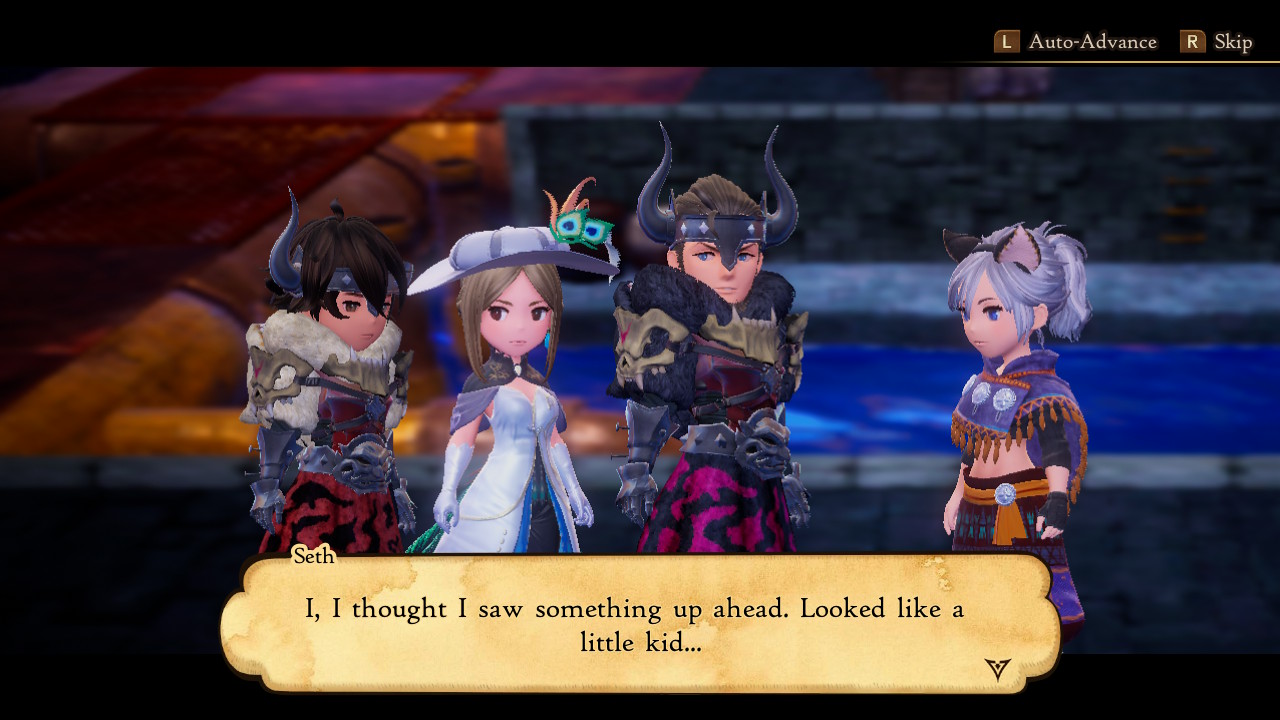
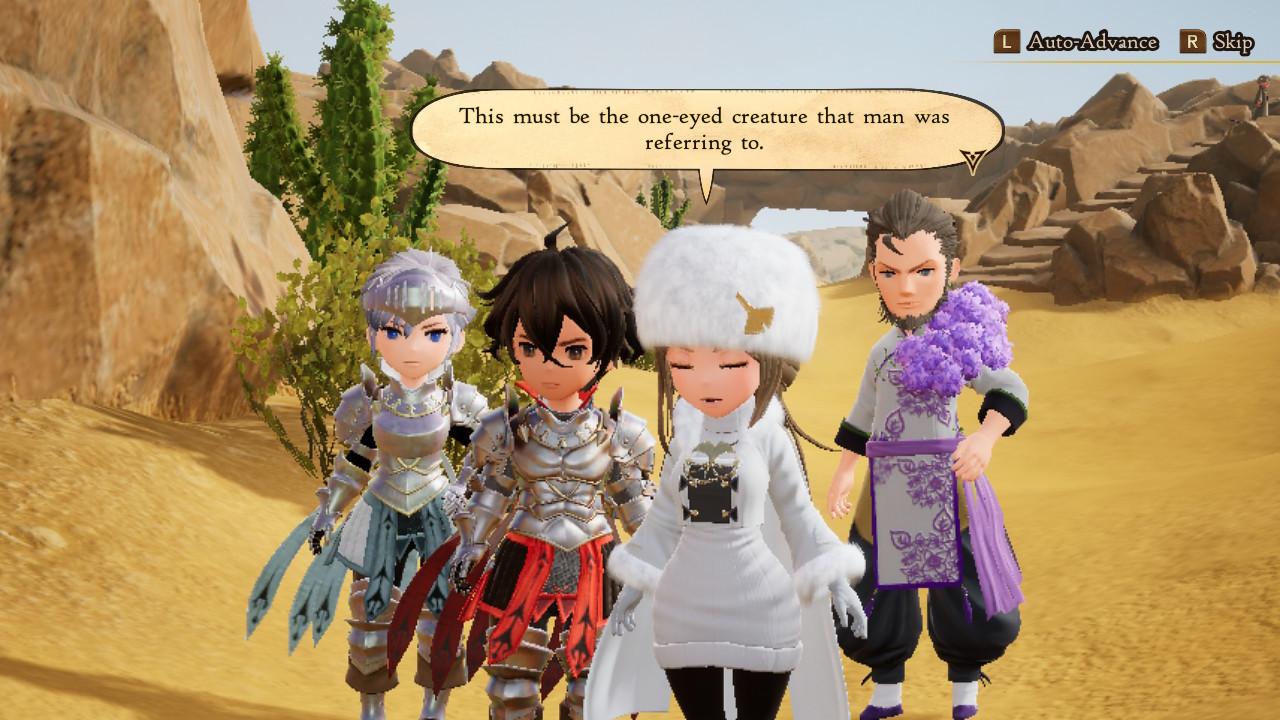
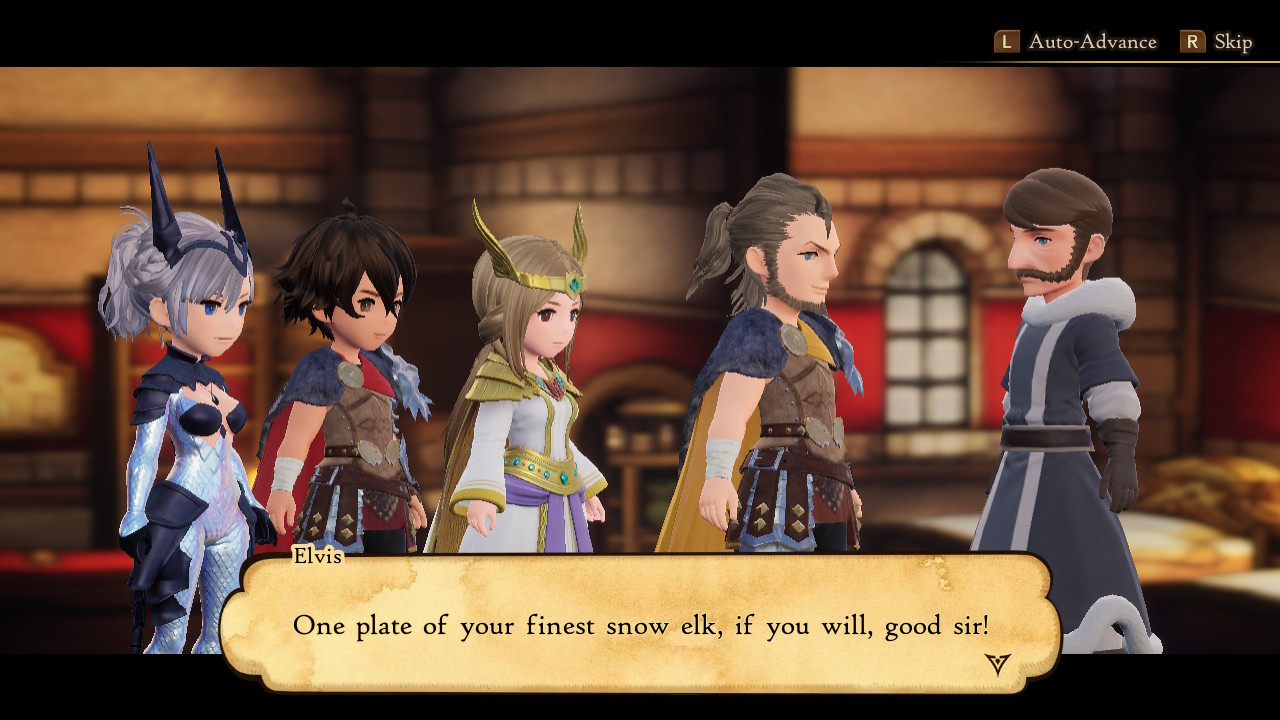
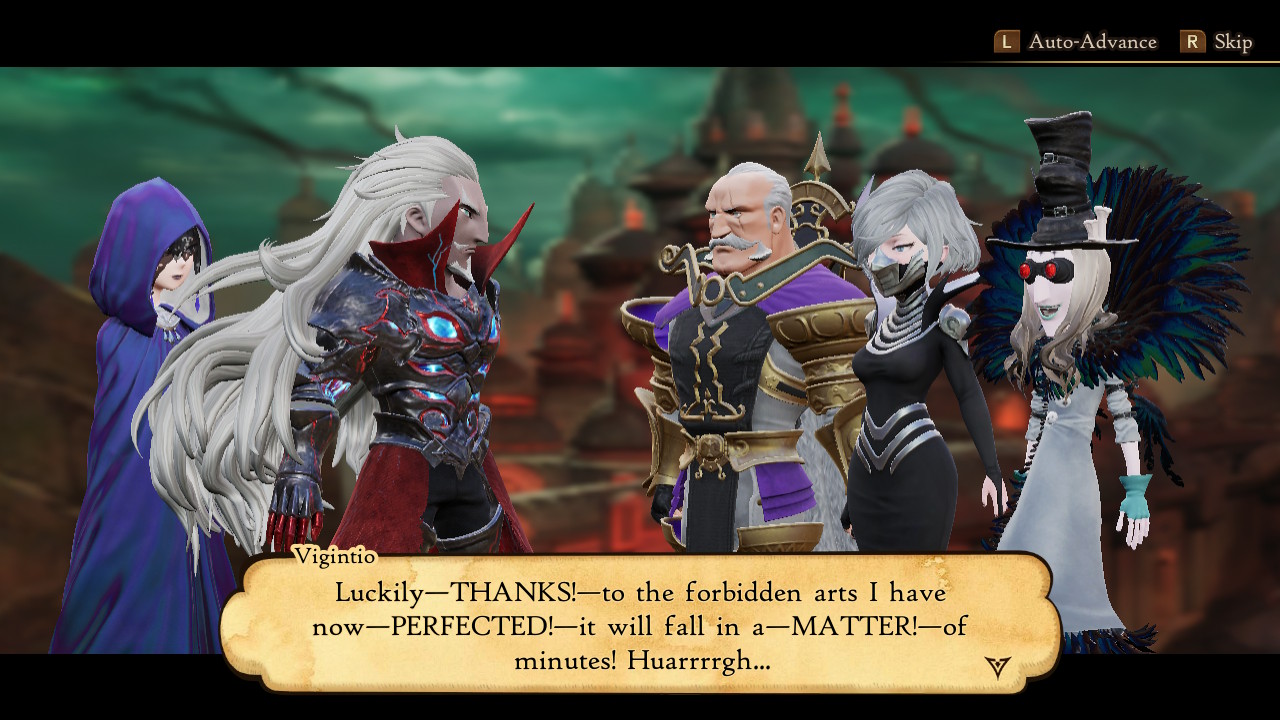
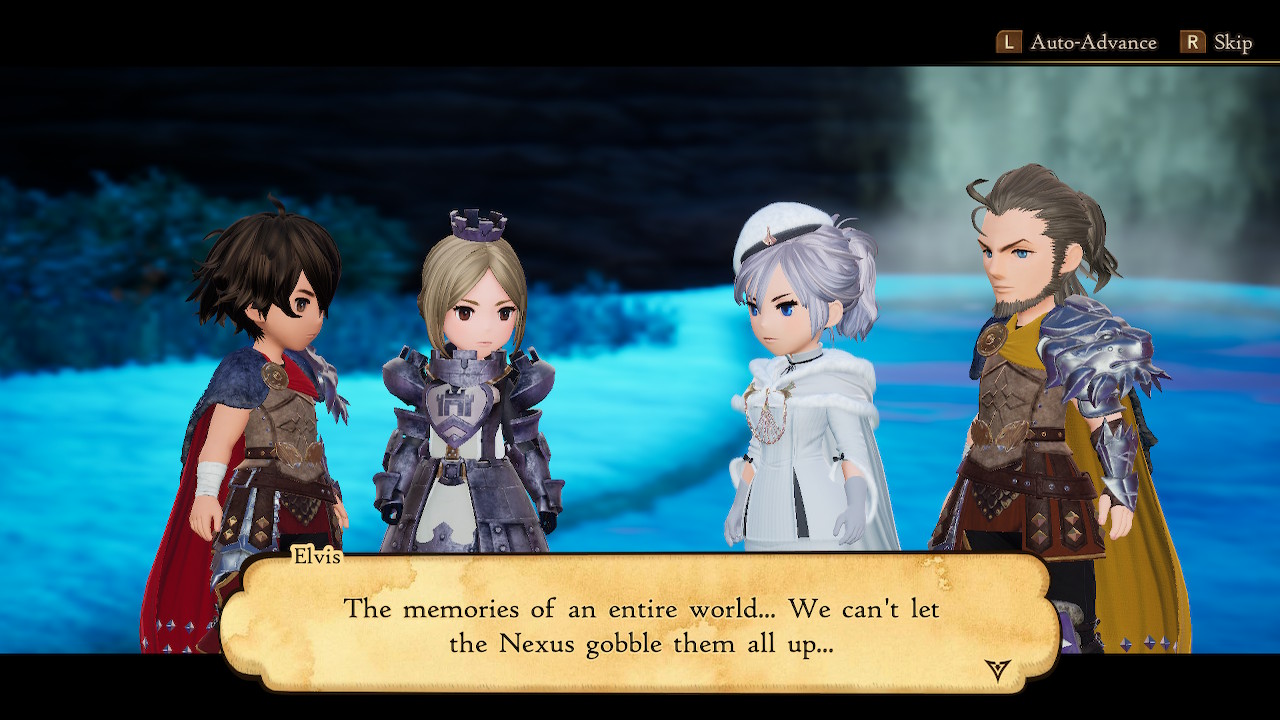
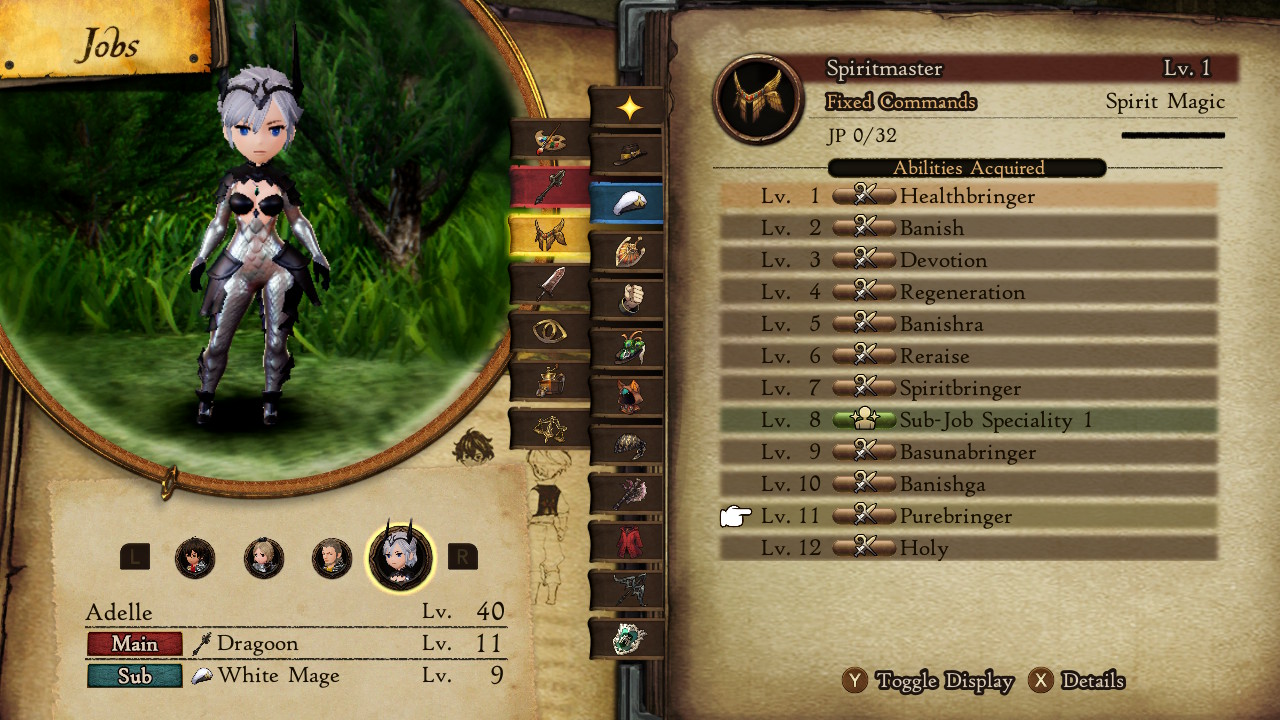
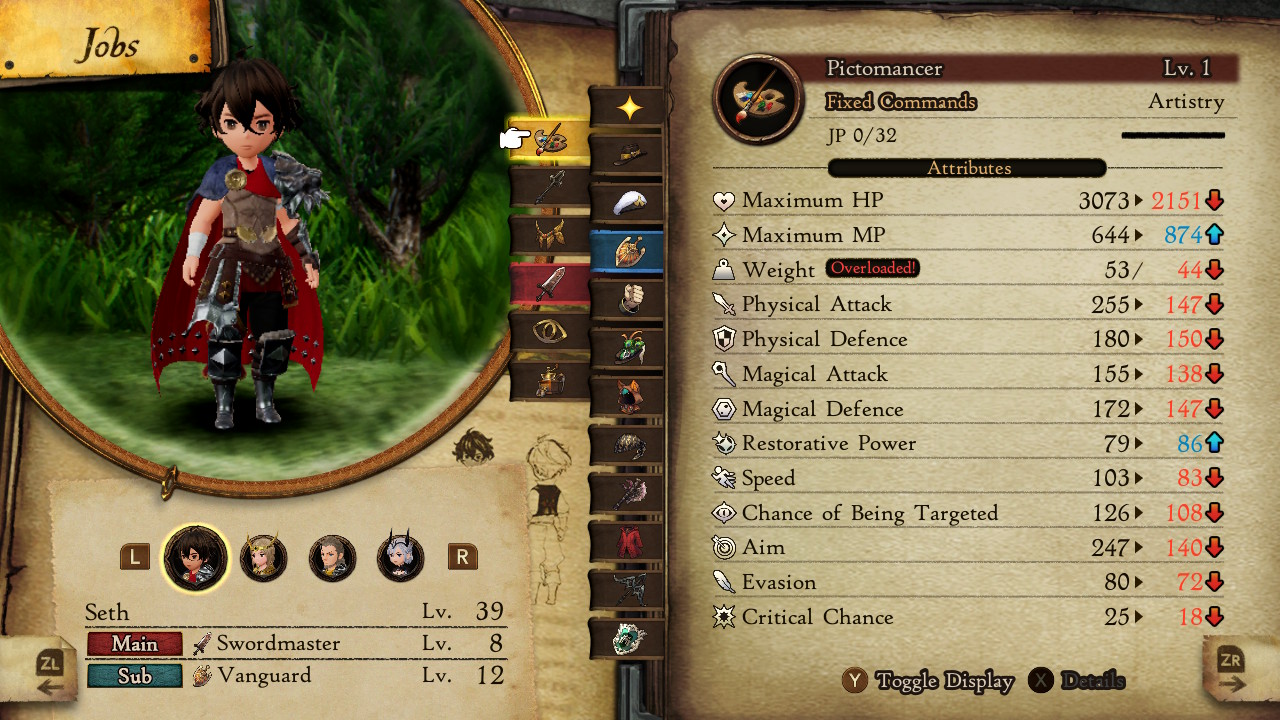
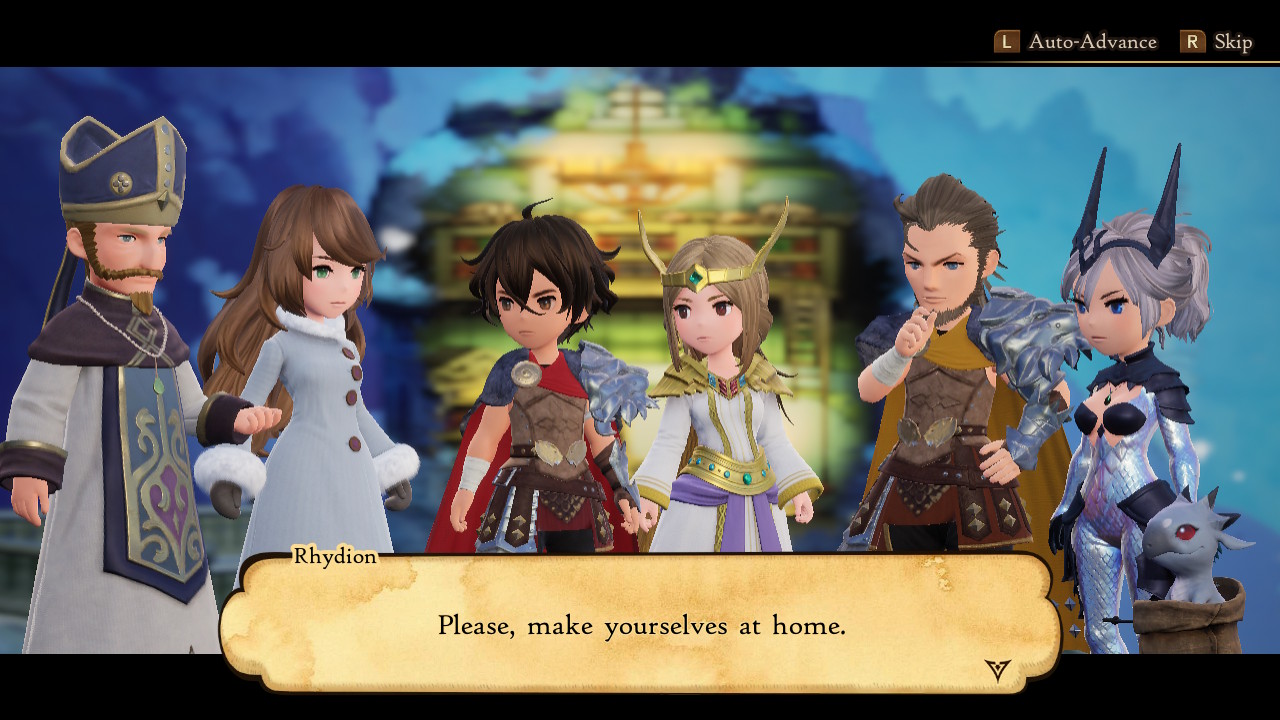
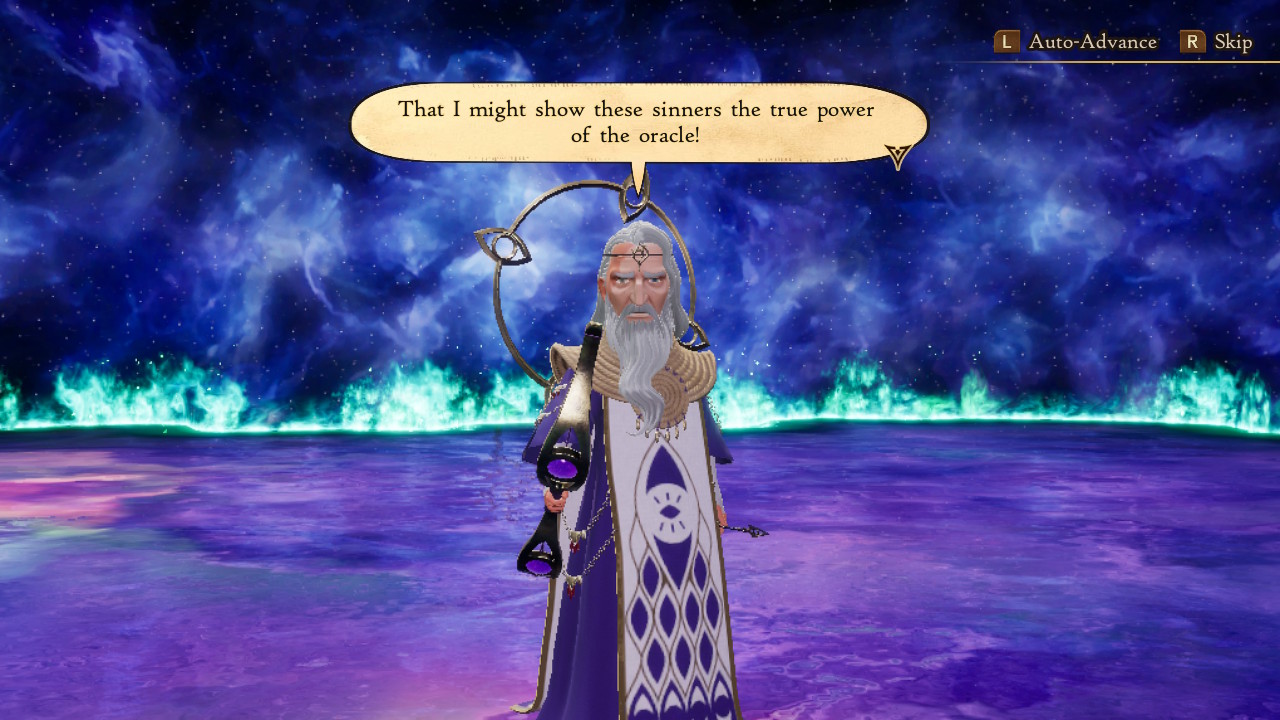
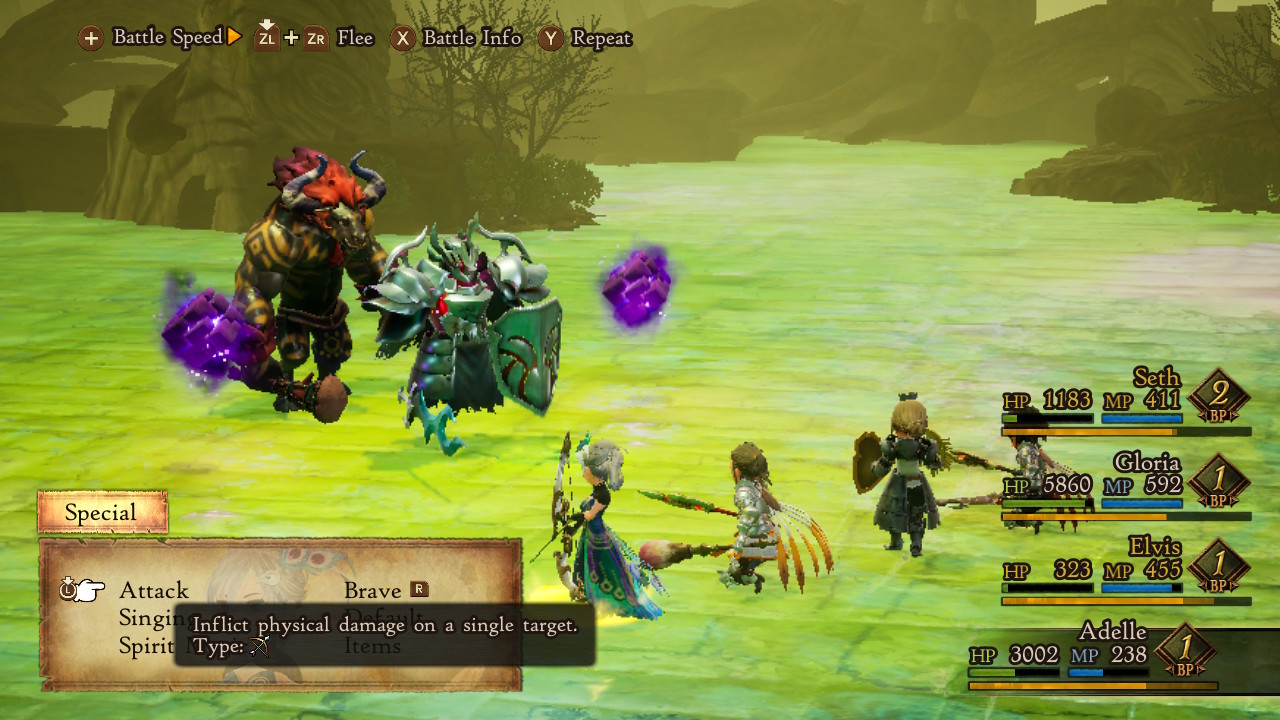
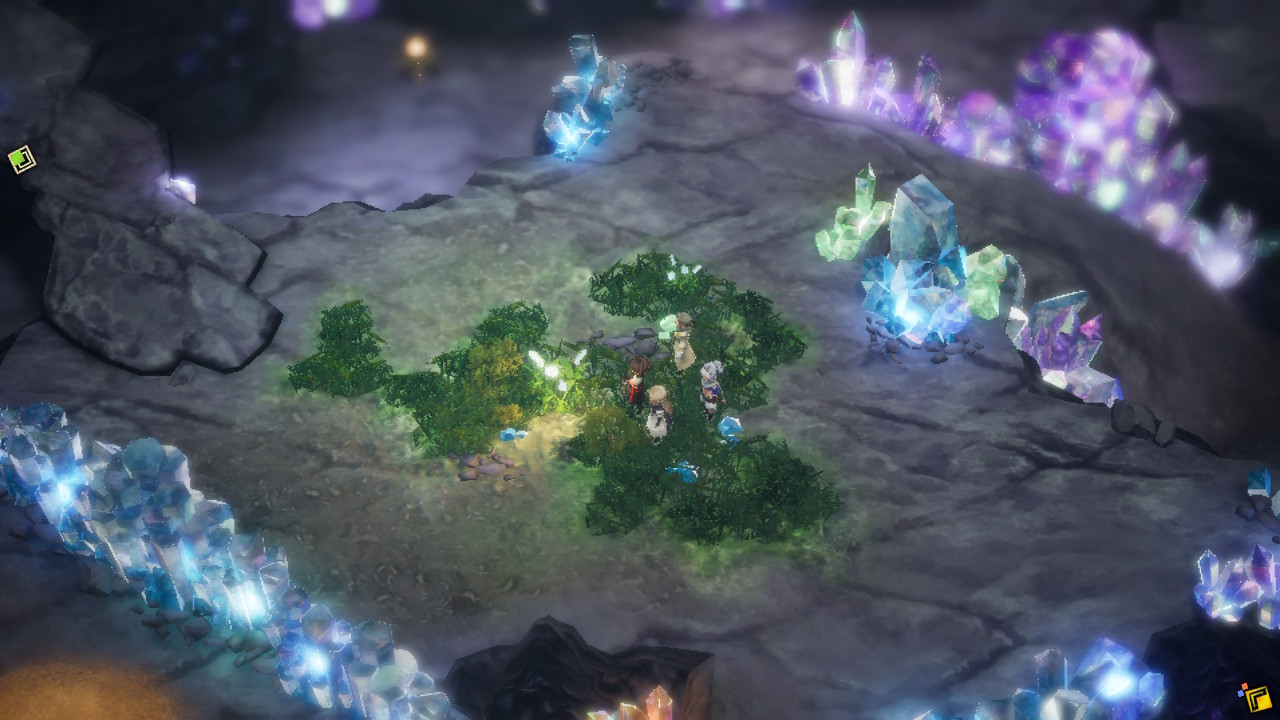
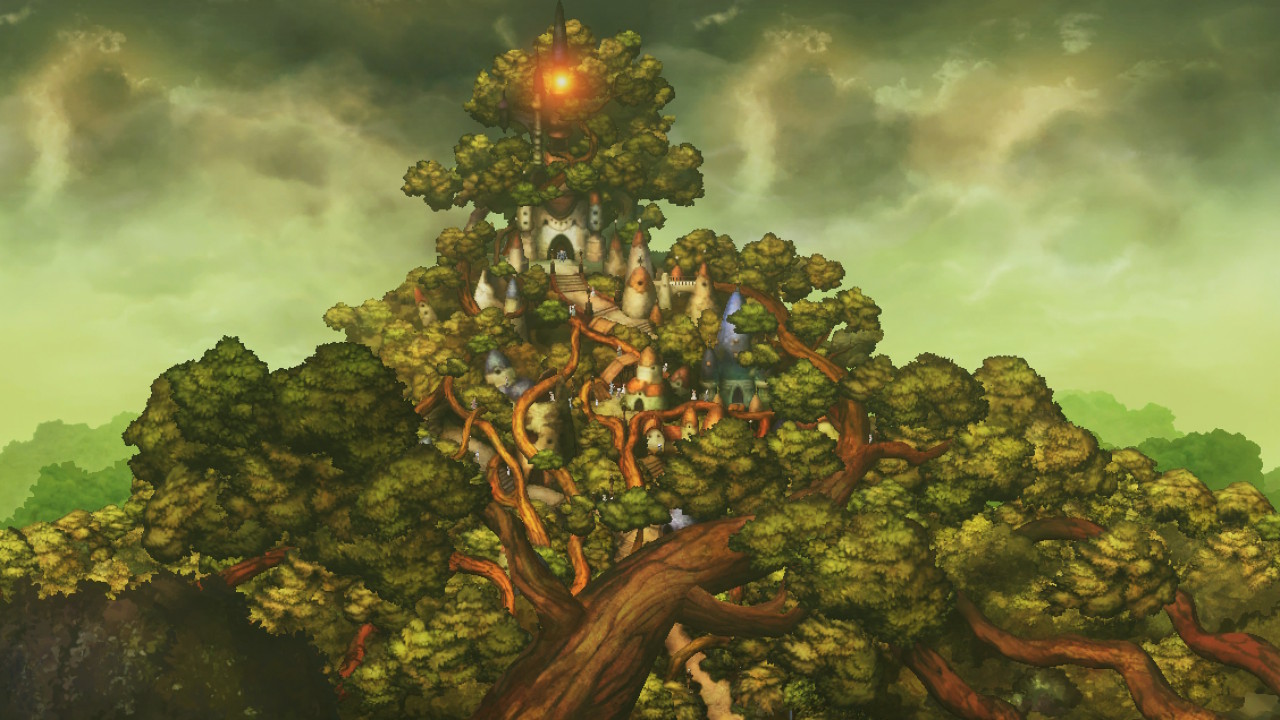
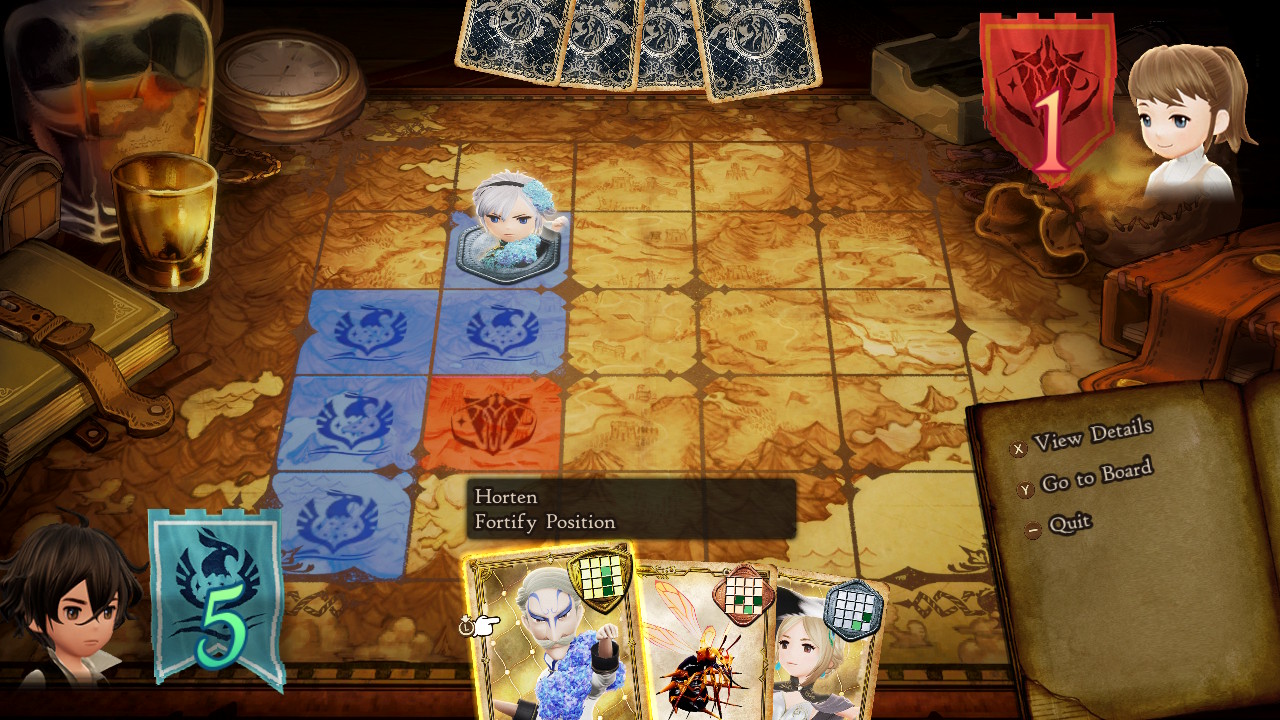
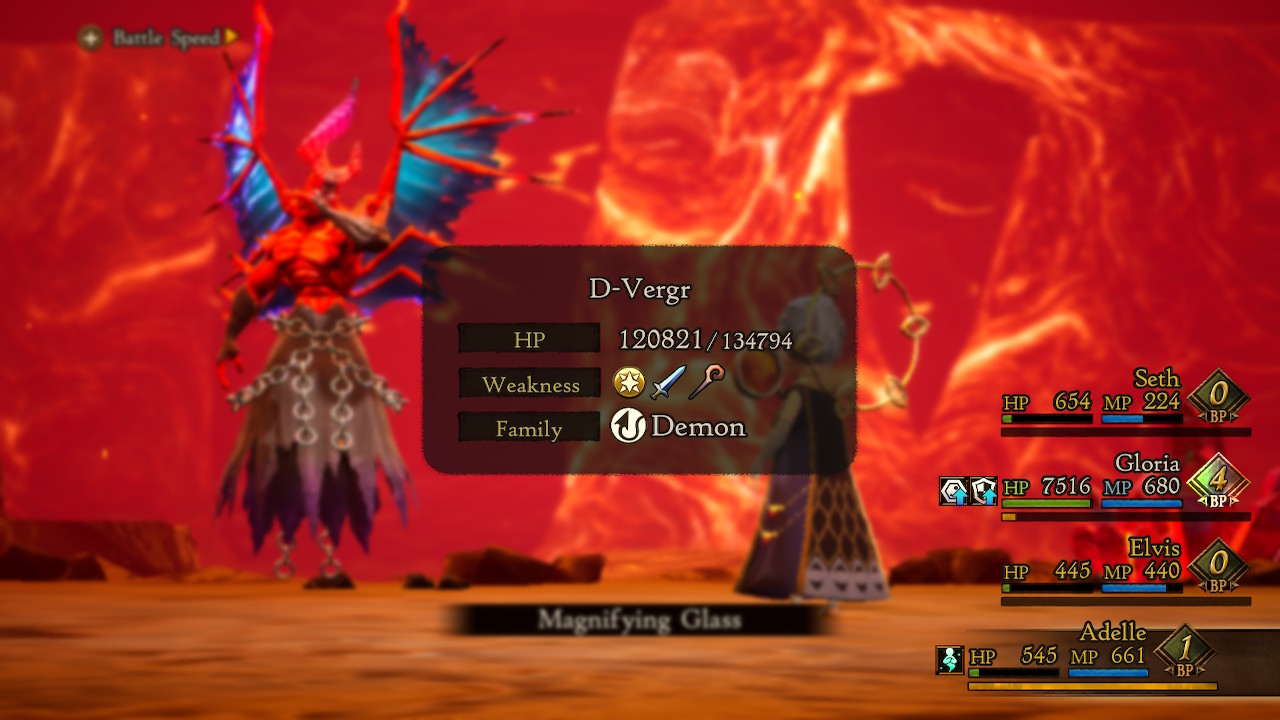

0